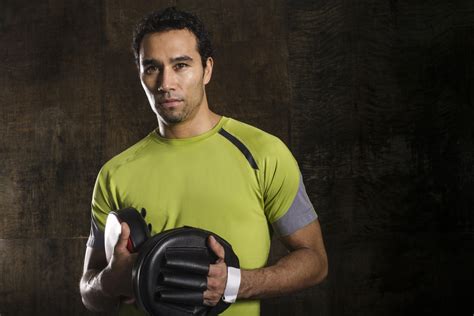A Quote by Kendall Jenner
I get really mean or emotional if I don't have food in my system.
Related Quotes
To a very great extent, it's the fast-food industry that really industrialized our agriculture - that drove the system to one variety of chicken grown very quickly in confinement, to the feedlot system for beef, to giant monocultures to grow potatoes. All of those thing flow from the desire of fast-food companies for a perfectly consistent product.
One surprise is how deeply the food system is implicated in climate change. I don't think that has really been on people's radar until very recently. 25 to 33 percent of climate change gases can be traced to the food system. I was also surprised that those diseases that we take for granted as what will kill us - heart disease, cancer, diabetes - were virtually unknown 150 years ago, before we began eating this way.
































